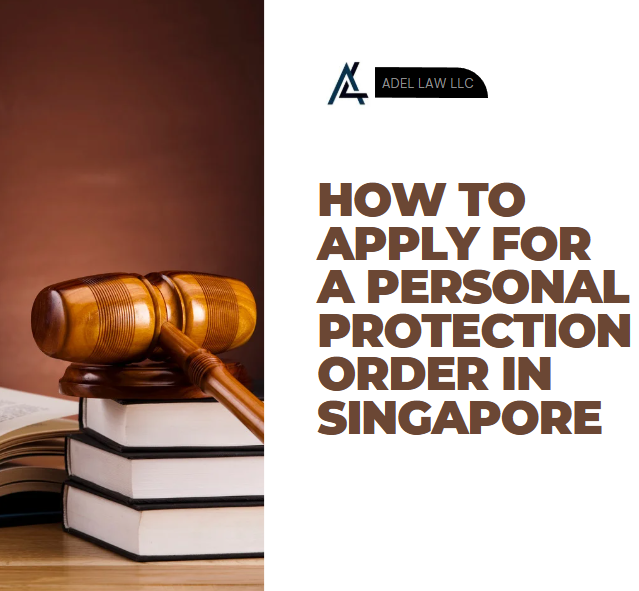How to apply for a Personal Protection Order is something many people in Singapore look into when facing family violence or threats at home. If you’re being harmed, harassed, or threatened by a family member, you have the legal right to seek protection under Singapore law.
A Personal Protection Order (PPO) is a court-issued order that stops an abusive family member from continuing their harmful behaviour. It’s meant to keep you safe and prevent further violence.
At Adel Law LLC, we’re here to support and guide you through the process if you need legal protection from family violence.
What Is a Personal Protection Order (PPO)?
A Personal Protection Order is a court directive that tells a family member to stop committing acts of violence, abuse, or harassment. It is issued under the Women’s Charter and is designed to protect victims of family violence.
In urgent cases, the court may also grant:
- Expedited Order (EO): Immediate, short-term protection while your PPO is being processed
- Domestic Exclusion Order (DEO): Prevents the abuser from entering or staying in the shared home
Who Can Apply for a PPO?
You can apply for a PPO if the abuse is committed by someone considered a family member, such as:
- Spouse or ex-spouse
- Parent or child
- Sibling or in-law
- Relative living in the same household
If the victim is a minor or vulnerable person, a guardian or concerned adult can apply on their behalf.
Step-by-Step: How to Apply for a Personal Protection Order in Singapore
1. File the Application
You can apply in person at the Family Justice Courts or submit your application online through iFAMS (Integrated Family Application Management System).
You’ll need to include:
- Your identification (NRIC or passport)
- A clear account of the abuse (dates, incidents, any injuries)
- Supporting documents like police or medical reports, photos, or witness statements
2. Attend the Mention Hearing
After filing, the court will set a date for a mention hearing. Both you and the respondent (the person you’re filing against) must attend. The judge will assess whether the case should proceed.
3. Mediation or Counselling
In many cases, the court may require both parties to go through counselling or mediation. This is to explore whether the issues can be resolved without a full court trial.
4. Court Hearing
If the case is not resolved through mediation, it will move to a court hearing. You’ll need to present your evidence and may be asked to testify. If the court finds that family violence has occurred or is likely to occur, a PPO will be issued.
Do You Need a Lawyer?
You can apply for a PPO on your own, but the process can be emotionally and legally complex. A lawyer can help you prepare your case, explain your rights, and represent you in court.
Having legal support increases your chances of getting the protection you need—especially if the other party contests the application.
Need Help with a PPO? Adel Law LLC Is Here for You
Knowing how to apply for a Personal Protection Order is the first step in protecting yourself or your loved ones from abuse. If you’re unsure where to begin or need support with your application, legal help can make all the difference.
At Adel Law LLC, we provide compassionate, professional assistance for individuals seeking Personal Protection Orders in Singapore. We’ll guide you through each step and ensure your safety is prioritised.




